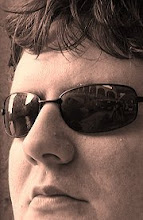"You may find it hard to believe that God could make everything out of nothing, but the alternative is that nothing turned itself into everything. Which takes more faith to believe?" --Mark Cahill
I haven't done (or studied) any serious philosophy of religion in three years, but here goes. I was inspired by this quote and by recent debates with a friend; the quote is by a nobody who has no respectable academic standing, but the gist of it is popular enough to warrant discussion.
This is a cosmological argument, one which appeal to causality to prove the necessity of God's existence. This very bare-bone form, which I've also seen attributed to Newton (?!), asks us to compare two possibilities:
1) God turned nothing into everything
2) nothing turned into everything by itself
When put this way, the God option sounds much more appealing. Who in his sane mind would say that something can come out of nothing, spontaneously? So let's agree that nothing can come out of nothing, and if something exists it means it must have come from something else which already existed before.
The believer says that this something else is God... but then where did God come from? We said that something must come from something else, so since God is arguably a something (but see below), then God must have also come from something else. What's this something else that God comes from?
Aquinas' answer is that there's no such thing, nothing that created God. God always existed. God is the uncreated creator, the unmoved mover, eternal. But why couldn't we say the same about the universe? Can't the universe also have always existed? Well, surely not in the present form (what idiot would ever believe that?), but rather in a primordial and condensed form consistent with current cosmological theories. So the nonbeliever may say something like this: a primordial form of the universe has always existed and is itself uncaused and eternal.
The believer now must accept that the two answers are the same. She was willing to admit that something (= God) has always existed, or she would contradict herself. So there's no reason now for her to deny that the universe can have always existed.
That is, of course, unless there's a major difference between what kinds of "things" God and the universe are. Surely neither of them is nothing, and if they're not nothing, then they must be something. But that assumes that there's only one kind of substance which underlies all "somethings." I'm not quire sure of that, but I'm at a loss to think of another substance which is neither nothing nor something, or a "something" of a different type. Believers have come up with their own half-baked, ethereal, Holy-Spirit versions of this extra substance, but those sound ad hoc and there's often no evidence other than the supposition that such a substance "must exist" for things to make sense. Well, if it must exist it's only because the believer needs to justify the fact that God is a something, a feat which the unbeliever needn't face and whose need she can deny tout court.
Pending a deeper understanding of the varieties of substances, the two original options take exactly the same amount of "faith" to be believed, because both say the same thing: nothing can come from nothing and thus something must have always existed, call it "God" or "universe" or however you wish.
Then, of course, there are many other reasons to favor the nonbeliever over the believer, or vice-versa. But that's beside the point: the point here is simply that I don't think the question of God's existence can be resolved purely cosmologically with a pseudo-argument such as this (or other, somewhat similar varieties of the cosmological argument, which of course need to be taken up individually).
--end of post--






